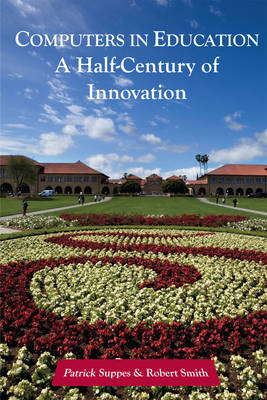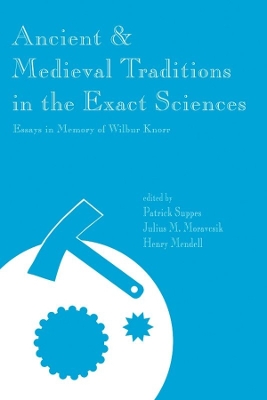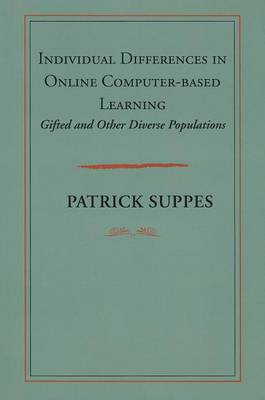CSLI Lecture Notes (CSLI- CHUP)
3 total works
Described by the New York Times as a visionary "pioneer in computerized learning," Patrick Suppes (1922?2014) and his many collaborators at Stanford University conducted research on the development, commercialization, and use of computers in education from 1963 to 2013. Computers in Education synthesizes this wealth of scholarship into a single succinct volume that highlights the profound interconnections of technology in education. By capturing the great breadth and depth of this research, this book offers an accessible introduction to Suppes's striking work.
Ancient and Medieval Traditions in the Exact Sciences
by Patrick Suppes, J.M. Moravcsik, and Henry Mendell
Published 1 January 2001
This volume of essays is dedicated to the late Wilbur Knorr, a historian of science. Inspired by Knorr's work, the essays concentrate on the history of ancient mathematics, the associated mathematical sciences and their medieval and modern traditions. Topics include: a study of geometric analysis and sythesis in ancient Greece and medieval Islam; an examination of Eudoxus as originator for the ideas of proportionality underlying Book V of "Euclid's Elements"; the extent that Renaissance theorists of linear perspective had access to ancient sources; a discussion of the geometrical chemistry of Plato's "Timaeus" and its interpretation in antiquity, as well as a study of Plato's concept of numbers and its relation to the Theory of Forms; and the history of science in a chronology of three dynasties in China.
Individual Differences in Online Computer-based Learning
by Patrick Suppes
Published 15 October 2013
In 1894 John Dewey established his experimental laboratory school at the University of Chicago, with a focus on teaching each student according to their individual differences. This concept indicated a shift away from the emphasis on communal, classroom teaching, which marked educational practices during the advent of widely available public education in the nineteenth century. With the introduction of computer-based online instruction in schools, curricula are able to be fully informed by individual difference, subtly and quickly tracking students' progress. In these courses, teachers play the role of troubleshooters instead of lecturers. "Individual Differences" examines a large number of studies of computer-based and online instruction, with special attention paid to gifted students in the fields of mathematics, science, technology, and engineering. Other chapters also focus on a wide variety of student populations: deaf students, American Indian rural students, and underachieving, impoverished students.


